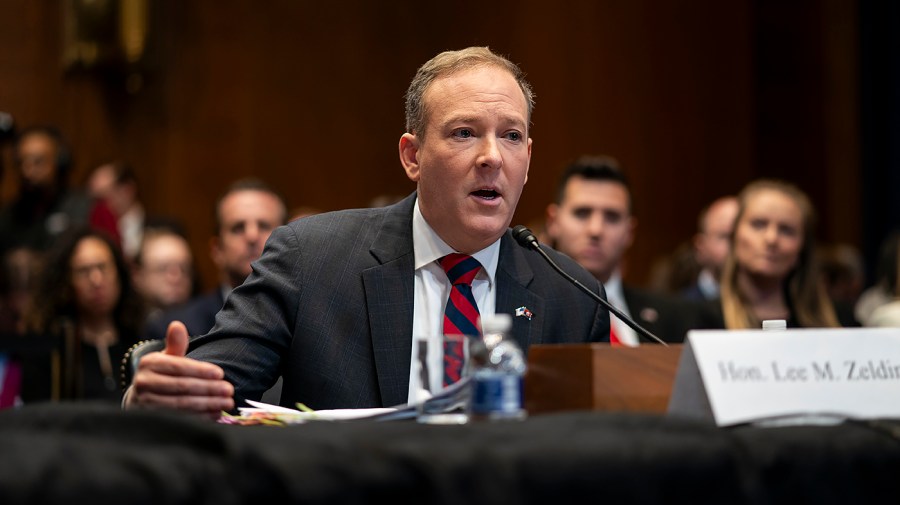EPA Administrator Zeldin Seeks to Reclaim $20 Billion from Biden-Era “Green Bank” Program
Environmental Protection Agency (EPA) Administrator Lee Zeldin has announced plans to reclaim $20 billion in grants that were distributed to nonprofits under the Biden administration’s Greenhouse Gas Reduction Fund program. This move marks a significant shift in environmental policy and has sparked debate about the role of government in funding climate initiatives.
Key Points:
EPA Administrator Lee Zeldin aims to recover $20 billion in grants already distributed to nonprofits. The funds were part of the Greenhouse Gas Reduction Fund, a program established under the Biden administration. Zeldin claims the funds were transferred to an outside financial institution in an attempt to reduce oversight. The move has sparked debate about the proper use of taxpayer money and environmental policy priorities.
Background
The Greenhouse Gas Reduction Fund was created as part of the Inflation Reduction Act passed in 2022. In April 2024, the EPA awarded $20 billion in grants to eight nonprofits to administer two programs: the National Clean Investment Fund (NCIF) and the Clean Communities Investment Accelerator (CCIA). These funds were intended to finance projects such as community solar installations, electric delivery vans, and energy-efficient multifamily housing. The program aimed to create a national network of clean technology financing institutions to support climate and clean energy projects, with a focus on delivering capital to underserved communities.
Zeldin’s Concerns
In a video posted on social media, Zeldin criticized the Biden administration’s handling of the funds, stating: “Shockingly, roughly $20 billion of your tax dollars were parked at an outside financial institution by the Biden EPA. This scheme was the first of its kind in EPA history, and it was purposely designed to obligate all of the money in a rush job with reduced oversight.” Zeldin argues that the funds should have remained at the Treasury Department and claims that the transfer to Citibank was an attempt to shield the programs from government oversight.
Potential Impact
The attempt to reclaim these funds could have significant implications for ongoing and planned climate projects. If successful, it may disrupt funding for numerous clean energy and efficiency projects across the country, affect the operations of the nonprofits selected to administer the funds, and signal a broader shift in environmental policy under the new administration.
Different Perspectives
Supporters of Zeldin’s move argue that it represents responsible stewardship of taxpayer money and increased oversight of government spending. Critics, however, contend that this action could hamper progress on climate initiatives and negatively impact communities that were set to benefit from these programs. Environmental groups and some Democrats are likely to oppose this move, viewing it as a setback for climate action. Republicans and fiscal conservatives may support the decision, seeing it as a necessary step to control government spending and reduce what they perceive as overreach in environmental regulation.
Looking Ahead
As this situation develops, several questions remain: Will the EPA be successful in reclaiming the funds? How will this affect ongoing and planned climate projects? What legal challenges might arise from this decision? How will this impact future environmental policy and funding decisions? The outcome of this situation will likely have far-reaching consequences for U.S. environmental policy and the future of government-funded climate initiatives.









